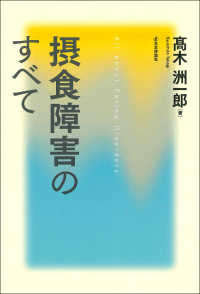Full Description
This book critically examines the ways that collective pasts are commemorated and contested in a wide variety of national locations, media and genres.
Collective remembering is a dynamic process, through which narratives about the past, about 'us' and 'them' as well as beliefs, values and affective conditions contained in these stories, are produced and reproduced. This facilitates room for not only the creation of unity but also the potential for contestation and conflict, given that different interpretations of the past are often vehicles for opposing political interests. This book reflects the geographical breadth and empirical depth of the field of collective remembering. Foregrounding the idea that collective remembering always entails contestation, individual chapters explore the field of remembrance and its various genres - including murals, memorials, museums, newspaper reports, speeches, textbooks, tourist tours and the work of community activists - in countries as diverse as Australia, Germany, Hungary, Israel, Italy, Portugal, South Africa, the UK and the USA.
This volume will be of interest to advanced students and researchers in Critical Discourse Studies, Memory Studies, Rhetoric and Communications. The chapters in this book were originally published in Critical Discourse Studies.
Contents
Introduction - Discourses of collective remembering: contestation, politics, affect 1. Genealogy and critical discourse analysis in conversation: texts, discourse, critique 2. Rhetoric, death, and the politics of memory 3. Memory practices and colonial discourse: on text trajectories and lines of flight 4. A politics of reminding: Khoisan resurgence and environmental justice in South Africa's Sarah Baartman District 5. The place of Palestinians in tourist and Zionist discourses in the 'City of David', occupied East Jerusalem 6. "A day that unites the nation": contestation of history in national day discussions 7. Manipulating information and manipulating people: examples from the 2004 Portuguese parliamentary celebration of the April revolution 8. Twenty-first century discourses of American lynching 9. Representing the (un)finished revolution in Belfast's political murals 10. Memory, media, and museum audience's discourse of remembering 11. Politics of memory, urban space, and the discourse of counterhegemonic commemoration: a discourse-ethnographic analysis of the 'Living Memorial' in Budapest's 'Liberty Square' 12. Responsibility for justice in action: commemoration, affect and politics at Il Memoriale della Shoah in Milan








